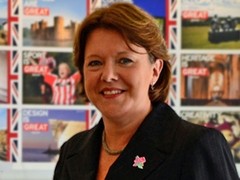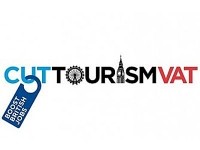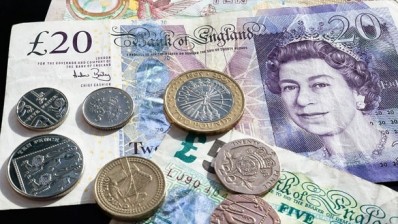New Tourism Strategy missed a trick, says VAT campaign

Miller outlined the new strategy which aims to help grow tourism to the UK by 29 per cent over the next seven years, with a target of welcoming 40 million overseas visitors by 2020.
That strategy could generate around £31.5bn in income and create an extra 200,000 jobs, but Graham Wason – chairman of the Cut Tourism VAT Campaign, claims that the case for reducing VAT on tourism was not properly addressed.
“Whilst the campaign applauds the report’s call for a ‘long-term ambition for growth’ we are disappointed industry submissions making the case for a VAT reduction for the sector were not given more consideration,” said Wason.
“The report accepts that other countries have recognised the potential of tourism to contribute to employment and growth and are adjusting their policies accordingly in order to compete internationally.
“It is therefore surprising that our proposed VAT reduction, which would bring us into line with our EU competitors, is not given due attention in this report. According to the Treasury’s own economic model this proposal is one of the ‘most efficient’ ways of generating GDP growth at low cost.
“Government could quickly implement a reduced rate of VAT to help industry competitiveness. Other proposals, such as delivering new airport capacity would take many years to be realised.”
The Campaign for Reduced Tourism VAT seeks a level playing field with the UK’s tourism competitors in the EU which apply VAT at reduced rates – for example 7 per cent in Germany and France for accommodation, compared to 20 per cent in the UK.
Borel's VAT Club
Meanwhile, a new study released earlier this week by the Jacques Borel VAT Club - which represents 43 major pub, restaurant and hotel operators - found that a cut in VAT from 20 per cent to 5 per cent on food and drink could create as many as 670,000 jobs in the UK.
A survey of operator members by the VAT Club found that they would pass on more than 50 per cent of any VAT reduction in lower prices, creating increased customer traffic of between 10 and 12 per cent. The increase in traffic would lead to the job creation levels outlined in the report.
The savings would also be used by operators to increase staff pay, as well as increase investment levels and training.
The study finds that the Treasury would see an initial loss of between £5.5bn and £7.8bn as a result of reducing VAT to 5 per cent in the sector. However, the losses reduce sharply as employment generation produces increased tax receipts, businesses in the sector pay higher tax receipts and the ‘black economy’ shrinks.
Return on investment
Borel, a French entrepreneur who has successfully campaigned for VAT reduction in hospitality across Europe, said: “The study shows that a targeted VAT reduction to 5 per cent in the hospitality sector would be a very powerful and cost-effective way of creating employment in the UK.
“There would be an initial loss of revenue to the Treasury but, as many other countries in Europe have discovered, the losses are quickly reduced – and even made neutral – as the sector grows turnover and creates jobs.”
A total of 13 of the EU’s 27 countries already apply a reduced rate of VAT to out-of-home foodservice. In July 2011, Ireland, for example, opted to apply reduced VAT to its room accommodation and restaurant sectors as an economic stimulus to boost tourism.
Borel added: “The UK should follow the lead of its European neighbours in boosting its economy and creating employment, particularly among the young, many of whom already begin their careers in the leisure sector.”



















